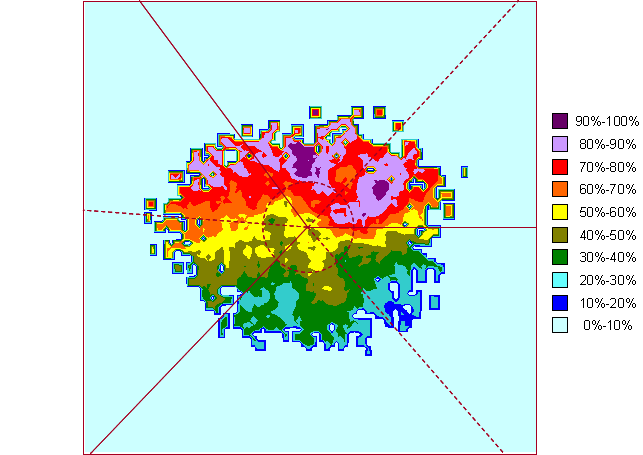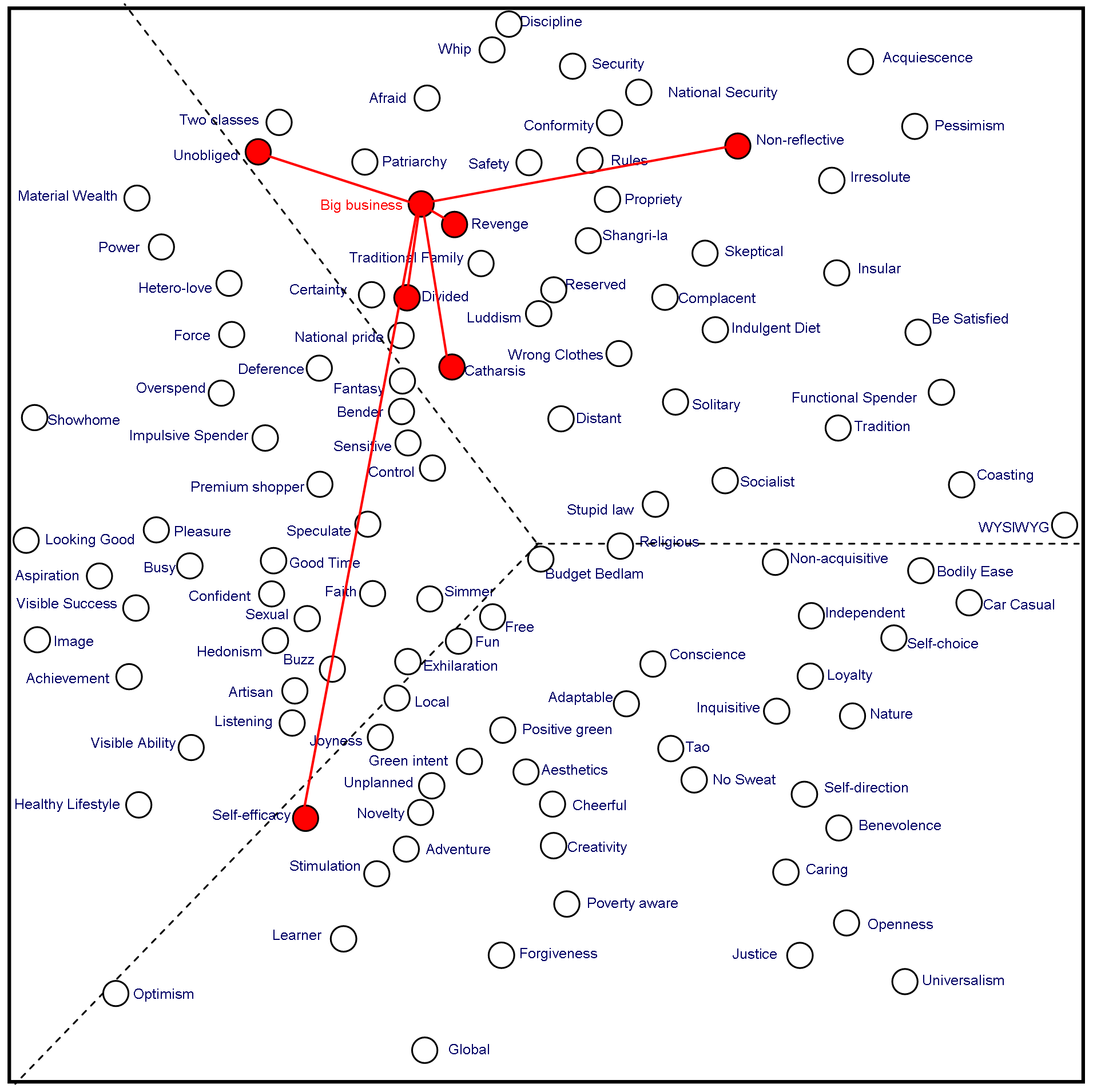

BIG BUSINESS
 |
I believe that what is good for big business is usually good for everyone else. I think society would be better of with less government involvement.
Espousers of the ‘Big Business’ Attribute are people who could be termed free market fundamentalists – those who in many ways have defined most political discourse at the national and international level for over 150 years.
The basis of their belief is that they are just ordinary people who can do whatever they set out to do. They believe they have done – many of these people are much older than the median age – and that everyone is responsible for their own destiny. This is the aspect of their values system that is hard to argue with: the Dominant Narrative would support this approach to life in the UK and in many countries with advanced economies, in the hard and uncertain times of the early 21st Century.
There is a dark side to this Attribute, however, which is difficult to reconcile with other parts of the Dominant Narrative as revealed in the British Values Survey.
There is an antagonism inherent in this Attribute and its espousers that is at odds with the more ethical and universalistic values of society.
These people believe that if people or organizations do them wrong, they won’t get mad – they will get even. They believe they must protect themselves from others different from themselves. People who don’t share their point of view can be potentially dangerous.
They believe that there are two types of people, winners and losers. They believe themselves to be winners, and if they are opposed it is by losers and that listening to them is a waste of time.
They see their lack of introspection about their point of view – an unwillingness to examine their own motivations and beliefs – as a strength, and by not backing off their opinions, at times in the face of conflicting facts and advice, they are displaying strength and resistance to the onslaught of the unworthy and losers.
The highly judgemental and rigid set of values contained in this Attribute also contains another set of beliefs that is the antithesis of the dominant view of most of UK society and many other countries. This is the belief that those better off have no responsibility for the less well off, and that they have no obligation to help their fellow citizens in times of economic distress.
Their positive approach to life – that the ordinary person can do much of what they set out to do if they just try – seems to have gone down a path that leads to an uncaring and judgemental values system that is at odds with much of the body politic in the country. The framing of ‘strivers’ and scroungers’ will resonate strongly with them.
It is not surprising that this a key attribute in support for some political parties in the UK and in other countries.
The majority of people may be ambivalent about big business, or even reject its ethos, but the espousers of this Attribute maintain their view that what is good for big business is good for all – and that governments should keep out of the way.
Using Big BusinessDemographic Skews: 1) Over indexed: Male, over 65, retired 2) Under indexed: Female, 25-34, up and mid-market Big Business espousers also espouse other attributes. The top six most highly correlated attributes of Big Business espousers are, in order of the strength of relationship: 1) Self Efficacy In total those who espouse Big Business also over-index significantly on 30 other Attributes. |
|
If "Big Business" (or the associated attributes) are important to you and you would like to delve more deeply, contact us at mail@cultdyn.co.uk
